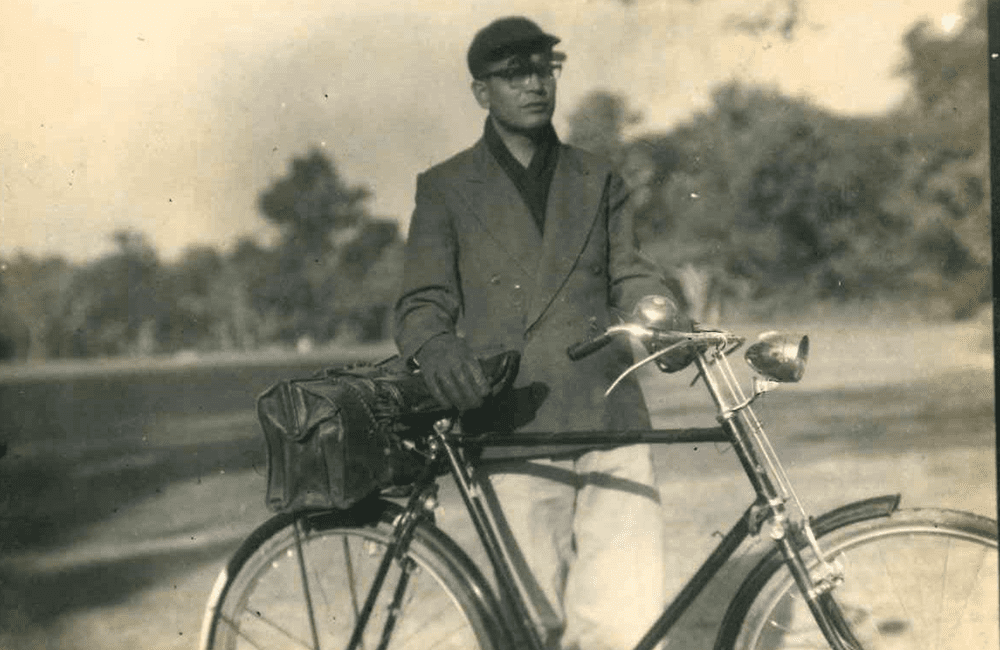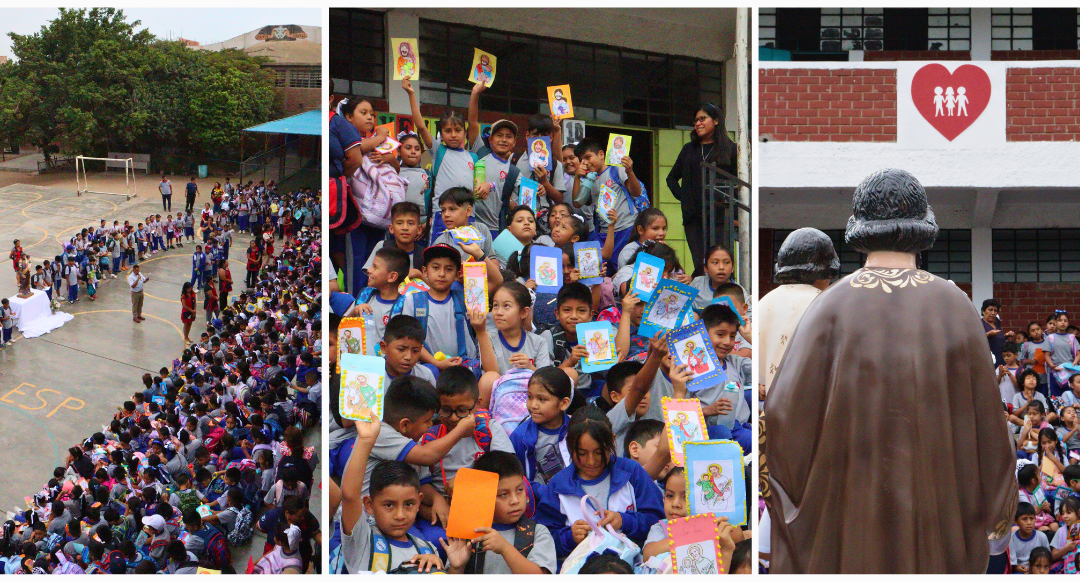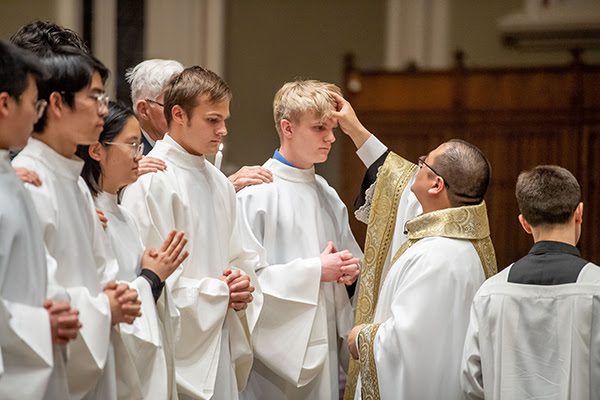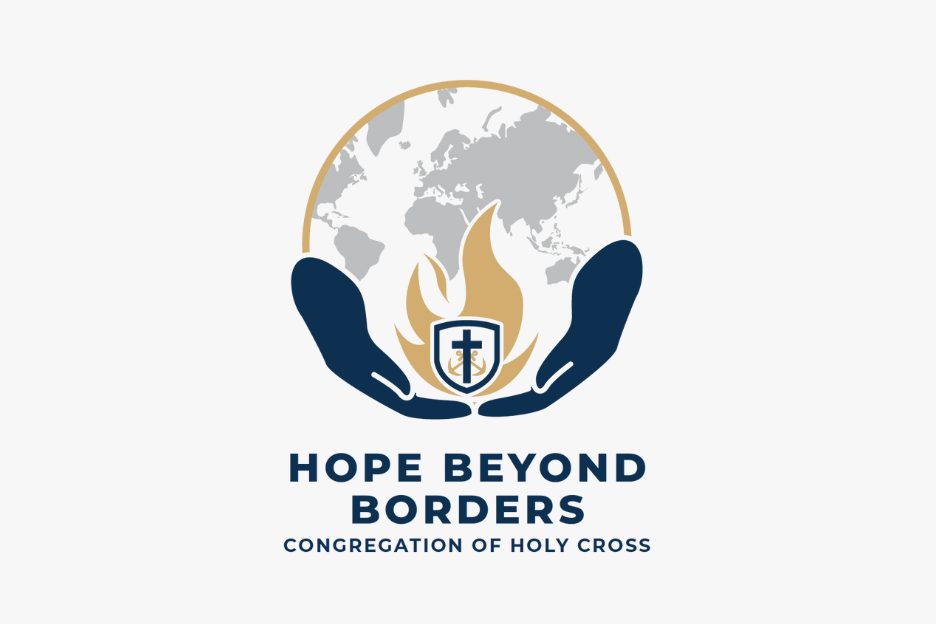Love of God and of Neighbor: The Witness of Servant of God Theotonius Ganguly
Blogs | Heroes | Spes Unica

For this World Mission Month during the 100th anniversary of our office, it’s worth highlighting the Congregation of Holy Cross’s success at our Bangladeshi missions in particular, for it was Blessed Basil Moreau’s willingness to send missionaries to Bangladesh in 1853 that earned the Congregation recognition by the Vatican, and it was the U.S. Province’s ministries in Bangladesh that Fr. Michael Mathis, C.S.C., wished to support when he founded the HCMC in 1923. Though situated on the economic and geopolitical peripheries, Bangladesh and its people sit at the center of the Congregation of Holy Cross.
There is no better window into Holy Cross trajectory in Bangladesh than the life and witness of Servant of God Theotonius Amal Ganguly, a native son of the missions, an international traveler, and a faithful Holy Cross priest who lived with and for the poor and vulnerable.
Ganguly was born on February 18, 1920, in what was then India. As a child, he received his education from Holy Cross brothers like so many Bangladeshi Christians at the time. He later discerned a call to the diocesan priesthood, which needed priests to staff parishes, schools, and seminaries to ensure that the local Church grew in numbers. The faith that had been nurtured by the Congregation for nearly a century in Bangladesh was bearing fruit in the form of local vocations.
Early in his priestly ministry, Ganguly’s intellect set him apart and he was tapped to pursue advanced studies at the University of Notre Dame in the 1940s. There, Fr. Ganguly completed his Master’s degree and Ph.D., making him the first Double Domer from Bangladesh. We can only speculate that during his years at Notre Dame he made his way to a Bengal Bouts competition, the annual men’s boxing tournament started in 1931 to fundraise for the Bangladesh missions. It seems a reasonable speculation, as does the possibility that his time at Notre Dame gave him a clearer understanding of the transcontinental partnerships of laypeople, priests, brothers, and sisters that had supported the Church in his native Bangladesh.
The Holy Cross community in South Bend inspired him to join the Congregation before returning to his homeland as a member of the Indiana Province. His later ministries as a teacher, administrator, and the Archbishop of Dhaka were bound up in his concern for the poor and vulnerable, evident in his 1968 inaugural address as Archbishop:
“[W]e shall seek without rest to bring God’s blessings to the poor and the hungry and the sick and needy. May the love of God not be a cloak that hides our laziness or indifference; may the love of neighbor not be an excuse for rashness and impatience. Rather, may love of God and of neighbor be the inspiration that urges us on to greater efforts in the service first of God and then of our fellow men.”
Two years after he spoke these words, a typhoon killed over 300,000 Bangladeshis and left millions more without housing, and Ganguly’s words took on new urgency. As Archbishop, he played a central role in coordinating the relief efforts across the country through his involvement in what today is Caritas, Bangladesh. The following year, he supported the Bangladeshi cause of liberation after the people of Bangladesh had been subject to the imperialistic aims of the United Kingdom, India, and Pakistan.
These two years of tumult weighed on Ganguly. The Superior General of the Congregation offered him respite in Rome, which Ganguly humbly declined out of his solidarity with his flock, saying, “I feel that it [going to Rome to recuperate] would be a rather uncommon measure not available to the generality of our people. If God should want me to continue to spend myself for his people, I am ready, be it even sick in bed.”
When the war ended, he famously donated his pectoral cross to help finance the recovery efforts and build the newly independent Bangladesh. This act, both symbolic and pragmatic, serves as an important example of how Holy Cross priests and brothers minister not just as servants, which might imply a relationship between someone with power to someone lacking power, but as neighbors—that is, equals who share each other’s lot. Archbishop Ganguly, C.S.C., like so many faithful Holy Cross religious, made the good of the community his own cause.
Upon his untimely death on September 2, 1977, thousands of mourners came to his funeral, where he was eulogized for being “strong in his gentleness” and for “[leading] the way to reconciliation by first declaring his own guilt.” He was beloved not just by the small Catholic community in Bangladesh but by Muslim leaders of the government, including then-President Zia Rahman.
Servant of God Theotonius Ganguly’s life is a testament to the success of the Congregation of Holy Cross’s international missions in drawing people to Christ through their words and witnesses. As the only non-Western member of the Congregation currently on the path to canonization, Ganguly’s witness is an invaluable entry point into the Congregation’s international identity and universal mission.
Whereas Holy Cross membership in the Bangladesh of Ganguly’s youth was entirely composed of Westerners, today we are proud to say that there are 81 Holy Cross priests and 71 finally professed Holy Cross brothers in Bangladesh, 97% of whom are from Bangladesh. They minister in over 215 schools and dozens of parishes scattered throughout Bangladesh, creating communities of the coming Kingdom like those that drew Ganguly in as a youth and to which he dedicated himself as Archbishop.
This World Mission Month, we invite you to help us further the Congregation’s legacy in Bangladesh and around the globe. Your prayers and financial support are much appreciated.
Published: October 12, 2023

Faith Abroad: The Feast of St. Joseph in Chile & Peru
The Feast of Saint Joseph was celebrated with joy and devotion across the District of Chile-Peru, uniting the Congregation of Holy Cross, including...

April 2025 Prayer Intention of the Superior General
All are invited to pray along with Superior General Br. Paul Bednarczyk, C.S.C., this month: For those who will receive the Sacraments of Initiation...

Celebrate With Us! The Year of Mission Begins on April 28, 2025
The Congregation of Holy Cross invites all friends, collaborators, and ministries to join in celebrating a landmark spiritual initiative: the Year...
